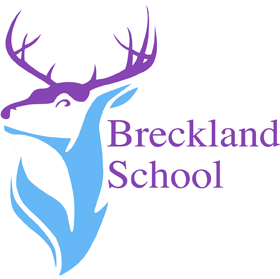Ethics, Philosophy & Religion (EPR)
“The untrained mind keeps up a running commentary, labelling everything, judging everything. Best to ignore that commentary. Don’t argue or resist, just ignore. Deprived of attention and interest, this voice gets quieter and quieter and eventually just shuts up.”
– Plato
| Curriculum intent |
| We believe that the purpose of an ethics, philosophy and religion curriculum is to provide students with an academically rigorous and fulfilling experience of understanding a range of differing world views, exposing them to a wealth of cultural capital to which they are entitled. By building knowledge of theology, philosophy and human/social science through the curriculum we empower students to understand the world around them and help them develop into thoughtful, responsible, and active citizens who are able to respectfully appreciate the views of others whilst formulating their own. |
| Powerful knowledge in Ethics, Philosophy and Religion |
| Ethics Philosophy and Religion is a subject that introduces students to the world around them through enquiry, discussion and understanding. Our students will learn to critically consider the world as it is now as well as how it has developed to reach this point. Students will learn the theology of large religious traditions in the UK, will engage in philosophical debates encouraging them to think more deeply and will look at the world through the lens of human and social science. This exploration will allow them to continue to grow into tolerant and respectful adults, who can appreciate each other’s different beliefs and opinion whilst being able to respectfully express their own. They will be functional citizens in a diverse world, and able to engage academically and knowledgably in discussion about a wide range of issues in the world. |
| Curriculum Features |
| At Key Stage 3, students will explore three thematic enquiry-based units of study each year, one from each of our disciplines: theology, philosophy, human/social science. These units are designed to allow students to interrogate concepts whilst understanding a range of viewpoints towards them. Lessons will comprise of a mixture of discussion, quizzing, extended personal responses as well as exposure to and analysis of religious and other world views in relation to the enquiry question posed. At Key Stage 4, students who opt for GCSE Religious Studies will follow the AQA A full course with a focus on Christianity and Islam as the two biggest religions in the UK today. This course looks at the core beliefs and practises of each religion and then applies this to a series of ethical/philosophical thematic studies. Those who do not opt for GCSE Religious Studies will follow a carefully constructed programme in mentor time to explore further Christian beliefs but also those of Buddhists – again applying them to ethical/philosophical topics. I wonder if this section should also include something about the curriculum structure or the philosophy of the structure/sequencing as wells as the content? For example: The curriculum is carefully sequenced to ensure that students’ knowledge is developed over time. Concepts and topics are regularly revisited and connections between themes, units and disciplines are made explicit to students, helping them to build a secure understanding of the many inter-connecting links between the various beliefs, values and debates explored. |
| Curriculum Enrichment |
| As part of our extra-curricular provision Key Stage 3, students can choose to attend Philosophy club where we interact with a range of stories that bring up philosophical issues and then discuss these to see how students would act. As part of Key Stag 4 Religious Studies, we endeavour to allow opportunities for our students to interact with people from the faiths they study, allowing the opportunity to hear from practising members of the faith and ask those probing questions they wish to know the answer to. |
Attachments
EPR Core Learning Journey
EPR-Core-Learning-Journey.pdf
EPR GCSE Learning Journey
EPR-GCSE-Learning-Journey.pdf
KS3 EPR Learning Journey
KS3-EPR-Learning-Journey.pdf
Year7 Autumn
Year-7-Unit-1-GESR-Booklet.pdf
Year 8 Autumn
Year-8-Unit-1-The-Problem-of-Evil-and-Suffering-GESR-Booklet.pdf
Year 9 Autumn
Year-9-Unit-1-What-makes-a-good-life-GESR-Booklet.pdf
Buddhist Beliefs
Buddhist-Beliefs-Knowledge-Organiser.pdf
Relationships and Family
Relationships-and-Family-Knowledge-Organiser.pdf
